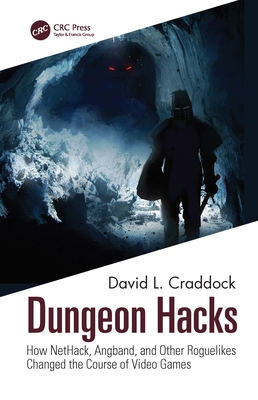What do you think?
Rate this book


154 pages, Paperback
First published August 5, 2015
Although it’s not important to the game, some of the most fun you can have with roguelikes actually doesn’t involve playing them, but involves going into the Usenet groups and reading players’ stories about their games.Dungeon Hacks is the definitive text on early roguelikes—a genre that hasn’t been generified like “xerox” to “copy”, “DOOM-clone” to “first-person shooter” [FPS], “Kleenex” to “tissue.” So the foundation—Rogue—is still in the name. But no one is preserving the link.
...One player started playing a character whose ambition in life was to be a dragon. She found the ring of polymorph and an amulet of polymorph control. She slips on the ring, drinks the potion of polymorph, specifies “black dragon,” then slips on the amulet. Dragons have lots of disadvantages, but she went on to win the game anyway.
"I never would have written [Moria] if I hadn't run into Colossal Cave Adventure and Rogue, and those were free. What I did is I ended up releasing the source code to anyone who wanted to run the game, but also so people could learn the same things I had learned—about data structures, about how to write code efficiently. That was kind of my gift to the education world, I guess."A number of interviews the author personally conducted are accessible in the back of the book. Having the interviews at the end is nice in theory, but structurally puzzling. As I read through them, I kept flipping back to reference the chapters and noticed that direct quotes were inserted; you’ll read the same words more than once if you read the whole book (my first excerpt is from an interview with John Harris, and it appears twice in Dungeon Hacks). I like seeing the sources fleshed out, so the small complaint of reading the same sentence twice barely registers on the cosmic scale of things that could have gone wrong with what seems to be a self-published (self-funded?) endeavor. Amazing.